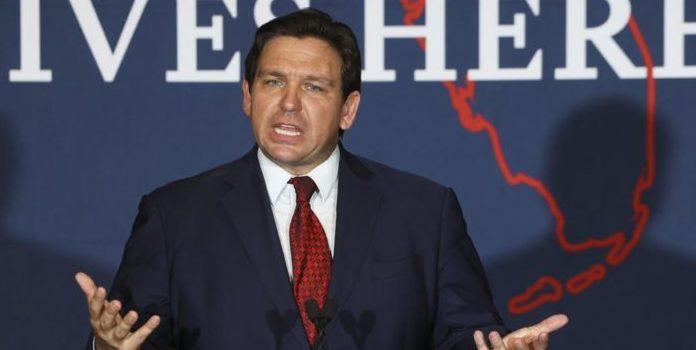(The Center Square) Fla. Gov. Ron DeSantis is taking sweeping action against what he says are threats posed by the Communist Party of China and the governments of six other countries through a series of executive actions and legislative proposals.
The measures “will curtail the nefarious intentions” of countries of concern in the areas of cyberspace, real estate and academia to protect Floridians, he said. The countries of concern include China, Cuba, Iran, North Korea, Syria, Russia and Venezuela.
“From server farms to farmland, the Communist Party of China has been worming its way into our nation’s data storage systems and buying up tracts of land near sensitive national security sites,” DeSantis said.
“By prohibiting the purchase of lands, state contracts with Chinese technology firms, and the infiltration of CCP-affiliated groups such as Confucius Institutes, [Fla.] is leading the way to protect our nation from international foes.”
On Thursday, DeSantis signed Executive Order 22-216 to prohibit government entities from procuring technology products and services from companies owned by, controlled by or domiciled in the seven foreign countries of concern.
The order directs the Department of Management Services (DMS) to promulgate rules and take any additional action necessary to ensure commodities and services used by state and local governments are not susceptible to exploitation by these countries.
The order prohibits state and local governments from procuring or utilizing technology services that have been determined by DMS to pose a risk to the safety and security of Fla. due to the company’s connections to or use by one of the seven countries, among other factors.
Doing so, DeSantis said, “will help prevent the exposure of government information and technology services and systems in [Fla.] to other state and non-state actors affiliated with” the seven countries.
DMS Secretary Pedro Allende said DeSantis’ plan “to develop cybersecurity and procurement rules and standards will make it harder for bad actors to gain a foothold on state infrastructure, will protect Floridians’ personal information and intellectual property and will further secure key information systems and the critical infrastructure that our state and its citizens rely on each day.”
DeSantis also proposed legislative action to prohibit government entities from contracting with companies owned by, controlled by or domiciled in the seven countries if the contract would provide access to Floridians’ personal information.
This includes bidding, submitting a proposal for or entering into or renewing a contract with a government entity if the contract would provide the company with access to an individual’s name in combination with a Social Security number, driver’s license, financial account numbers, medical history, insurance policy numbers or other information.
Commissioner of Education Manny Diaz, Jr., said, “As a Cuban-American, I know how Communist countries attempt to infiltrate schools and universities to steal intellectual property and indoctrinate young people with their dangerous and radical ideology.”
“By removing this influence and focusing on the importance of American ideals and citizenship through civics education, [Fla.] is again leading the way for the nation to follow.”
DeSantis also proposed legislative action to prohibit any of the seven countries from purchasing agricultural land and land surrounding military bases in Fla. There’ve already been instances of Chinese Communist Party-affiliated companies purchasing land near military bases in other states, including Grand Forks Air Force Base in North Dakota, he said.
Fla. is home to 21 military bases from every branch of the armed forces, “and while the state has allocated money to purchase land nearest to some of these bases to increase security perimeters, more needs to be done to protect our domestic national security assets,” he said.
As of 2019, foreign investors held an interest in 5.8% of Florida’s privately held agricultural land, ranking Florida as having the fifth highest percentage of reported foreign-owned land.
Thirty-one states have regulations in place for foreign ownership of agricultural land by law. In Iowa and Minn., no foreigner is allowed to acquire any interest in agricultural land, the governor’s office noted.
The proposals are in line with a bill DeSantis signed into law last year, requiring disclosure of foreign donations to state educational institutions over $50,000 as one way to expose CCP-funded Confucius Institutes.
But some entities have found loopholes, the governor’s office said, which is why he’s proposed legislative action to amend reporting requirements in Fla. statutes.
The legislature will consider a proposal to prohibit gifts to higher education institutions in Fla. from anyone residing in or entity domiciled in the seven countries listed or from any of their governments.

